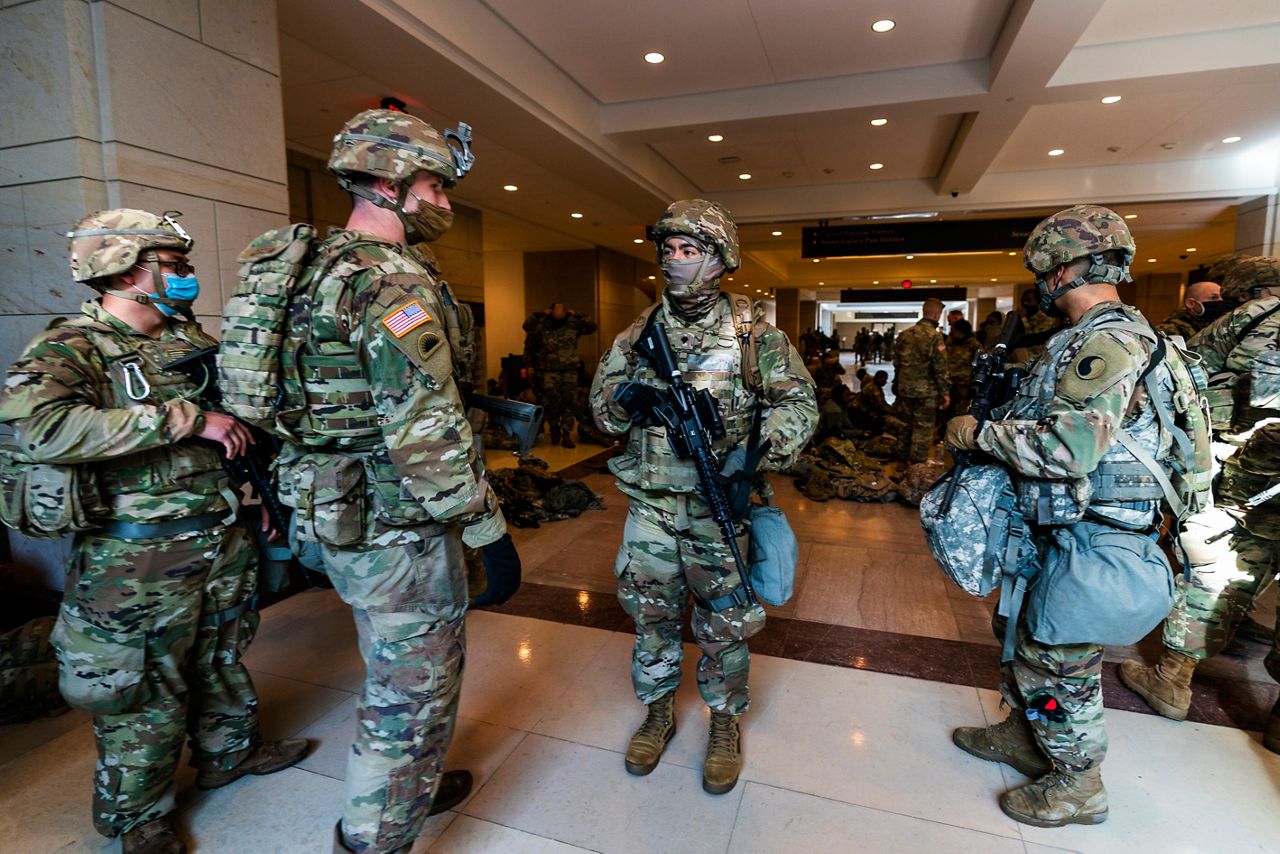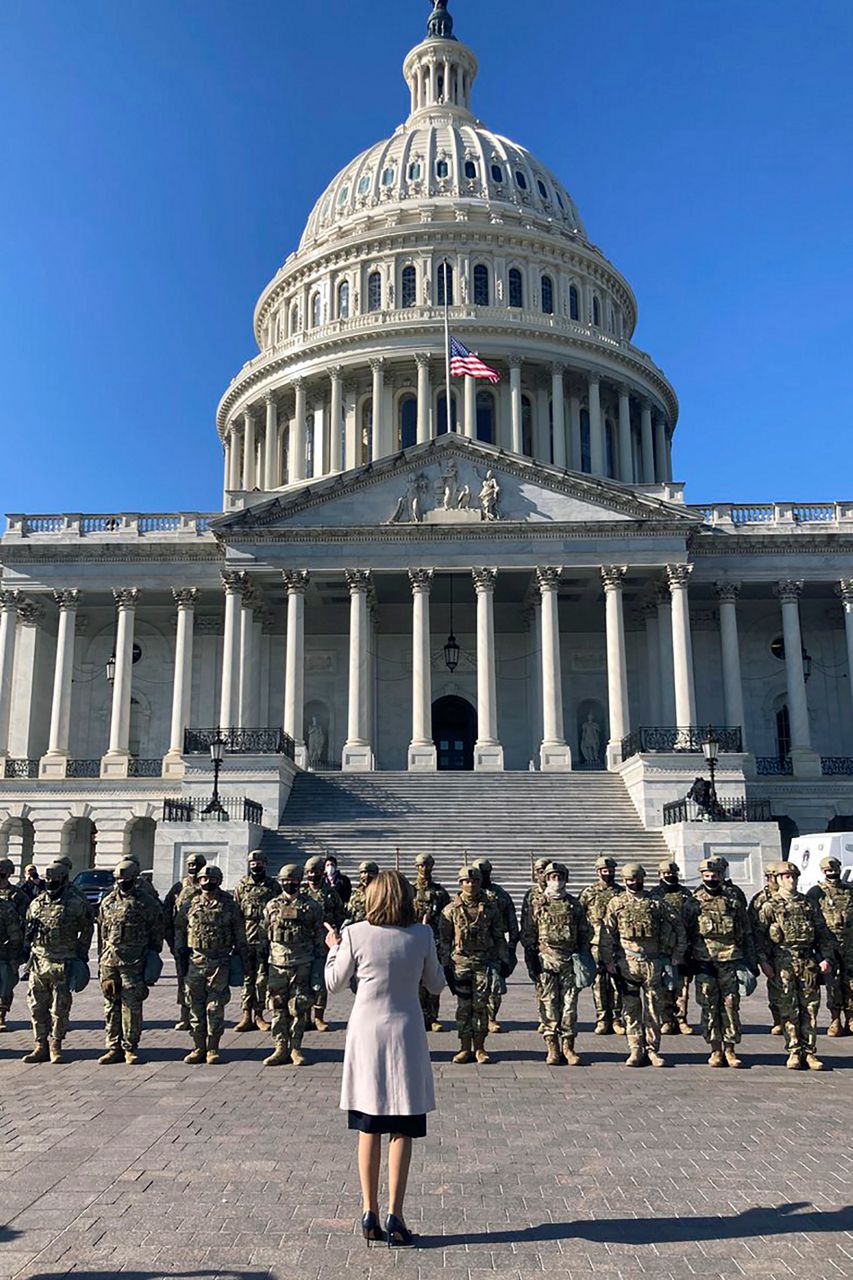The House of Representatives voted to impeach President Donald Trump Wednesday for inflaming his supporters in Washington exactly one week earlier, resulting in a deadly insurrection at the U.S. Capitol.
In one of the quickest processes in history and after an emotional debate between House lawmakers, Trump became the first U.S. president to be impeached twice. The article of impeachment approved by the House accuses him of "inciting violence against the government of the United States” and calls for his removal from office.
The final vote was 232-197, with 10 Republicans joining Democrats in voting to impeach the president. It was the most bipartisan impeachment vote in U.S. history.
The House will soon send the article of impeachment to the Senate, where they are required to begin a trial to decide whether to convict the president. Majority Leader Mitch McConnell said he would not call senators back earlier than Jan. 19, as scheduled, meaning that the trial will likely take place after President Trump leaves office.
The Majority Leader reiterated this point in a statement following the vote: "Given the rules, procedures, and Senate precedents that govern presidential impeachment trials, there is simply no chance that a fair or serious trial could conclude before President-elect Biden is sworn in next week."
"Even if the Senate process were to begin this week and move promptly, no final verdict would be reached until after President Trump had left office," he added. "This is not a decision I am making; it is a fact. The President-elect himself stated last week that his inauguration on January 20 is the ‘quickest’ path for any change in the occupant of the presidency."
"In light of this reality," McConnell said, "I believe it will best serve our nation if Congress and the executive branch spend the next seven days completely focused on facilitating a safe inauguration and an orderly transfer of power to the incoming Biden Administration."
McConnell did, however, tell colleagues in an email Wednesday that he has “not made a final decision” on how he will vote, adding, “I intend to listen to the legal arguments when they are presented to the Senate.”
In a statement issued after the impeachment, President-elect Joe Biden said that those responsible for the insurrection at the Capitol "must be held accountable," but added that he hopes the Senate will prioritize building his Cabinet and other responsibilities while handling the impeachment trial.
"This criminal attack was planned and coordinated. It was carried out by political extremists and domestic terrorists, who were incited to this violence by President Trump," Biden said of the Capitol attack. "It was an armed insurrection against the United States of America. And those responsible must be held accountable."
"Today, the members of the House of Representatives exercised the power granted to them under our Constitution and voted to impeach and hold the president accountable," he continued. "It was a bipartisan vote cast by members who followed the Constitution and their conscience. The process continues to the Senate."
"This nation also remains in the grip of a deadly virus and a reeling economy. I hope that the Senate leadership will find a way to deal with their Constitutional responsibilities on impeachment while also working on the other urgent business of this nation," Biden added. "From confirmations to key posts such as Secretaries for Homeland Security, State, Defense, Treasury, and Director of National Intelligence, to getting our vaccine program on track, and to getting our economy going again. Too many of our fellow Americans have suffered for too long over the past year to delay this urgent work."
In speeches on the floor Wednesday, Democrats called the president dangerous and painted his impeachment as their congressional duty, while Republicans called it mistimed and divisive.
“He must go. He is a clear and present danger to the nation that we all love,” House Speaker Pelosi said Wednesday, opening a two-hour debate on the article.
"Those insurrectionists were not patriots. They were not part of a political base to be catered to and managed. They were domestic terrorists, and justice must prevail,” she added.
The Minority Leader in the House, Rep. Kevin McCarthy (R-CA), directly implicated the president in last Wednesday’s riot, calling it an “attack on the people who work” in the Capitol.
“The president bears responsibility for Wednesday’s attack on Congress by mob rioters,” McCarthy said. “He should have immediately denounced the mob when he saw what was unfolding.”
Still, McCarthy said impeachment was not the path forward, and he said it would instead lead to more division. Others balked at the timing of the Democrats’ effort, with President Trump set to leave office in just seven days.
“We should be focused on bringing the nation together. Instead, Democrats are going to impeach the president for a second time one week — one week — before he leaves office,” Rep. Jim Jordan (R-OH) said. “Why? Politics, and the fact that they want to cancel the president.”
Not every Republican agreed with this assessment, with several voting in favor of impeachment, bucking the GOP majority.
“There is no excuse for President Trump's actions,” Rep. Dan Newhouse (R-WA) said on the floor of the House. “The president took an oath to defend the constitution against all enemies foreign and domestic. Last week there was a domestic threat at the door of the Capitol and he did nothing to stop it. That is why with a heavy heart and clear resolve, I will vote yes on these articles of impeachment.”
In a powerful speech, Rep. Jason Crow (D-CO), an Army veteran, called on his Republican colleagues to exhibit “courage” by voting in favor of impeachment.
“This Congress sends our men and women to war every day.” Crow said. “"I'm not asking you to storm the beaches of Normandy but just to show a fraction of the courage we ask of our troops every day."
While House lawmakers considered the president’s impeachment for inciting the violent mob, the building where they met looked much more secure than the week before, with hundreds of National Guardsmen spread out across its marble floors. The Guard is authorized to send as many as 15,000 troops to Washington, D.C., and at least 10,000 are expected there by this weekend.

Outside, dozens more soldiers guarded the building, which is now completely surrounded by a seven-foot high black fence. Security got a major boost ahead of next week’s inauguration, including a special federal designation that went into effect Wednesday.

As House lawmakers debated his impeachment, President Trump put out a new statement condemning violence, as the FBI warned state capitals around the nation to prepare for threats next week.
“In light of reports of more demonstrations, I urge that there must be NO violence, NO lawbreaking and NO vandalism of any kind,” the president’s statement read.
“That is not what I stand for, and it is not what America stands for," he added. "I call on ALL Americans to help ease tensions and calm tempers.”
Since McConnell said he will not call lawmakers back to Washington early for an impeachment trial, it’s now likely that it will happen during a Biden administration, after Trump has already left office.
The Senate is scheduled to reconvene on Jan. 19, and President-elect Joe Biden will be sworn in a day later.
But there is precedent for holding an impeachment trial after someone leaves office. In 1876, Secretary of War William Belknap was impeached by the House just moments after he resigned.
Still, the Senate held a trial weeks later. Senators voted and agreed that they “retained impeachment jurisdiction over former government officials.”
They acquitted Belknap, and this Senate could acquit President Trump as well. However, they could also hold a separate vote to bar the president from holding future office, which also has precedent.



